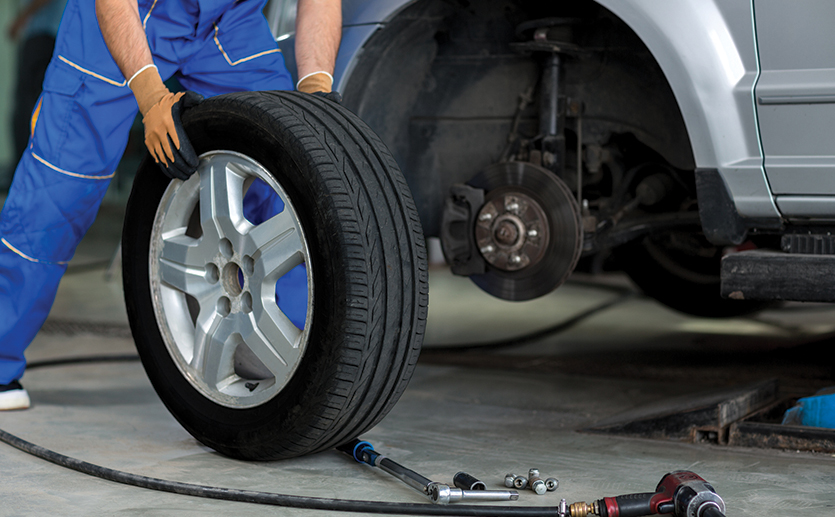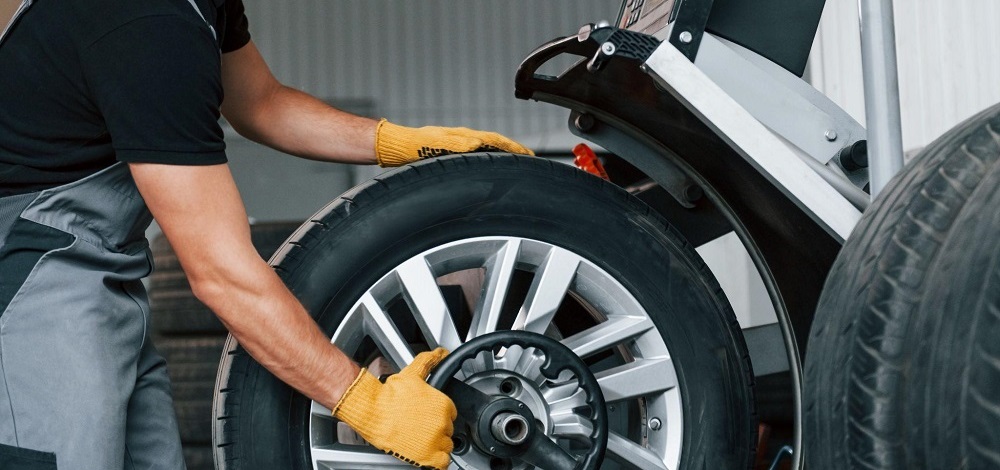Unlock Performance: Expert GMC Tire Service at Morris Tires
Unlock Performance: Expert GMC Tire Service at Morris Tires
Blog Article
Tire Solution: The Influence of Climate Condition
When it comes to making certain ideal performance and safety and security on the roadway, comprehending the influence of weather condition conditions on tire service is crucial. GMC Tire Service. In this conversation, we will certainly explore the intricate connection between weather conditions and tire service, shedding light on the significance of weather-specific tire upkeep techniques and considerations.
Warmth and Tire Efficiency
When subjected to high temperature levels, tires experience changes in performance that can considerably influence vehicle safety and security and handling. The warmth produced from prolonged driving or hot weather condition conditions causes the tire rubber to soften, leading to decreased tread life and raised wear.

Winter Impacts
Cold weather condition conditions can have a significant impact on tire performance and security. In cold climate, tires may also shed air pressure extra quickly, which can affect handling and gas performance.
To mitigate the effects of winter on tires, it is critical to frequently inspect tire stress and inflate them to the manufacturer's suggested degrees. Making use of winter months or all-season tires developed for cool weather conditions can likewise improve grip and grip on icy or snowy roadways. Appropriate tire upkeep, including regular assessments for wear and damage, becomes much more crucial throughout colder months to ensure ideal performance and safety and security.
Rainy Issues Influence
Tires with worn-out treads are a lot more vulnerable to hydroplaning, where a layer of water builds up between the tire and the roadway surface, leading to loss of grip. To battle this, chauffeurs ought to consistently inspect their tires for appropriate walk deepness and think about investing in tires especially designed for damp conditions.
In addition, rainy weather can also reduce visibility, making it testing for motorists to see the roadway in advance clearly (GMC Tire Service). In such problems, it is vital to adjust driving rates accordingly and keep a secure complying with range to allow for abrupt stops. Correctly inflated tires can additionally help in keeping control on damp roads by giving much better handling and hold
Snow and Tire Safety
When driving in snowy problems, having the appropriate tires can make a considerable distinction in safety and efficiency. Wintertime tires are developed with unique rubber view it compounds and tread patterns to offer better traction on snow and ice contrasted to all-season tires.

In addition, vehicle drivers need to think about mounting tire chains in severe snowy conditions. Tire chains provide added traction by gripping the snow and ice, enhancing stability and control. However, it is very important to comply with producer instructions when utilizing and setting up tire chains to stop damage to the tires and vehicle. By choosing the best tires, maintaining proper rising cost of living, and taking into consideration additional grip help like tire chains, drivers can boost their safety when browsing snow-covered roadways.
Weather-Related Tire Maintenance
When encountered with different weather, correct tire maintenance becomes a critical aspect of lorry safety and security and efficiency. Weather-related tire maintenance encompasses a variety of techniques targeted at making sure optimal tire feature and durability in different climate circumstances. One essential aspect of weather-related tire upkeep is tire stress guideline. Fluctuating temperatures can trigger tire stress to differ, influencing grip and gas efficiency. Regularly checking and adjusting tire stress according to manufacturer recommendations is crucial for secure driving in changing weather. Additionally, tire walk deepness plays a substantial role in handling different weather condition aspects. Tires with appropriate step deepness provide better hold on wet or icy roads, minimizing the risk of skidding or hydroplaning. When walk wear reaches a specific depth is essential for keeping traction and stability in unfavorable weather, examining tire tread consistently and replacing tires. By focusing on weather-related tire upkeep, drivers can improve security, enhance lorry efficiency, and lengthen the life expectancy of their tires.
Conclusion
In conclusion, weather condition conditions have a significant influence on tire performance and safety and security. From warm impacting tire stress and use to winter reducing grip, it is necessary to think about the climate when preserving and utilizing tires. Stormy conditions can lower grasp and cause hydroplaning, while snow can enhance the risk of crashes if tires are not correctly equipped. Weather-related tire maintenance is crucial in making certain ideal efficiency and security when traveling.
In this discussion, we will check out the detailed Visit This Link relationship in between weather condition problems and tire service, shedding light on the value of weather-specific tire maintenance methods and factors to consider.

Report this page